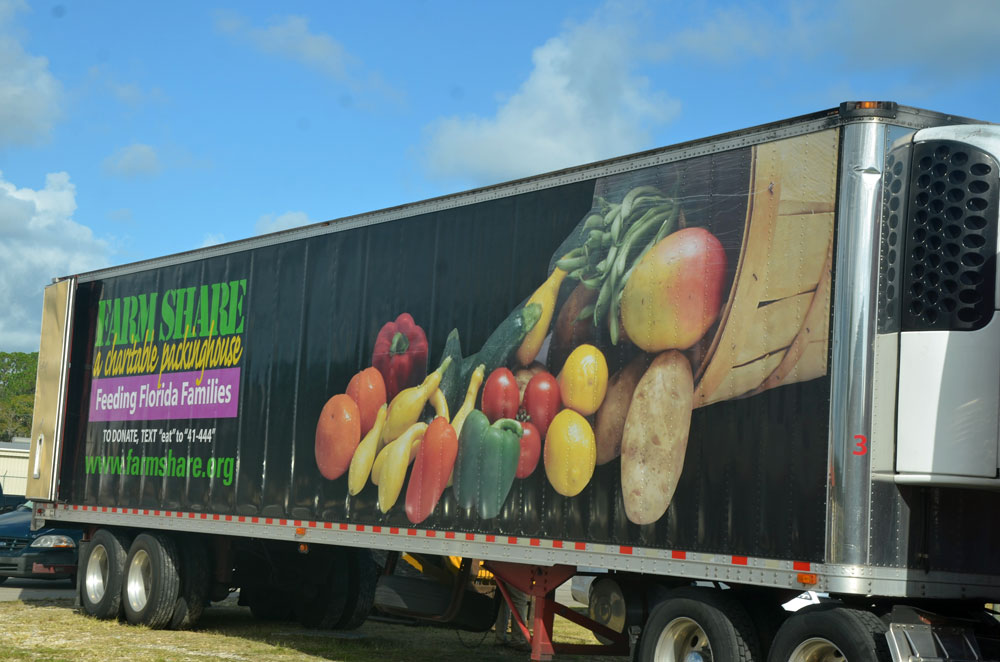
By Reyanna James
The roughly 42 million Americans who rely on food stamps did not receive their November 1 SNAP benefits as the government shutdown dragged on. The missed payments came just as the holiday season began, leaving many families struggling to put food on the table. Lines at food banks backed up traffic across the country.
The Trump administration defied federal court orders to restore full funding to the program before the Supreme Court’s conservative majority temporarily greenlit the freeze. The White House even tried to claw back funding from states that had already distributed it to hungry families.
Lawmakers have now negotiated an end to the shutdown. But the threat to the nation’s primary nutrition assistance program is far from over. As the government reopens, millions will still lose access to food assistance starting almost immediately.
 The GOP’s “Big Beautiful Bill,” passed earlier this year, guts core safety net programs to fund tax cuts for billionaires, mass deportation efforts, and bloated military spending. The GOP law includes the largest SNAP cuts in history, slashing our most important and effective anti-hunger program by roughly 20 percent.
The GOP’s “Big Beautiful Bill,” passed earlier this year, guts core safety net programs to fund tax cuts for billionaires, mass deportation efforts, and bloated military spending. The GOP law includes the largest SNAP cuts in history, slashing our most important and effective anti-hunger program by roughly 20 percent.
People in every state are at risk of losing their food benefits, according to the Center on Budget and Policy Priorities. One of the main ways the bill cuts SNAP is by expanding harsh and ineffective work requirements. These new rules will strip food assistance from millions of people, including children, seniors, veterans, and individuals with disabilities. According to the Congressional Budget Office, the change will cause 2.4 million people to lose benefits in an average month.
Those rules are now in effect, just as families prepare to celebrate Thanksgiving and the winter holidays.
Research shows such requirements have little effect on employment: most working-age adults enrolled in these programs are already working, and those who are not employed often face high barriers such as caregiving responsibilities or health conditions. Instead, these requirements cause many people who should qualify for SNAP to lose benefits due to red tape and administrative error.
The GOP law also shifts SNAP costs onto states for the first time in the program’s history. This vital food program has always been fully federally funded, but the new budget will require states to take on a significant share of expenses. The unprecedented burden shift will likely lead many states to cut enrollees or even terminate food aid programs entirely for the first time since their inception, causing even more people to go hungry.
As the government resumes normal operations, the fight against hunger must continue. SNAP has long proven to be highly effective at reducing food insecurity and hunger, especially among children. We have the tools to fight hunger, and we must use them.
In the richest country in the world, no one should go hungry.
![]()
Reyanna James is an inequality research associate at the Institute for Policy Studies. This op-ed was adapted from Inequality.org.





























Thomas Hutson says
Well now isn’t this just a surprise coming from the reds! This TACO wack job lies so much did anyone really believe the blues were the ones that were lying about TACOS big beautiful bill! Well you ended the shutdown so what now! Remember in 2026-60 you can correct this mess! Think of that every time you look at that 600 million dollar warehouse And watch TACO PLAYING GOLF! Yummy taste great!
Al says
How dare they be required to work,oh the cruelty of dignity. These same people can’t wipe their butts because their arms are too short. The liberals always find the one person who needs help and makes them the poster child for all the freeloaders. Caregivers, people without arms and legs, and terminally I’ll are deserving. The rest need to find out how to produce in society. Finally all these articles try to group veterans and seniors into their arguments, being both a veteran and a senior I say we’re just fine so don’t include us.
Kennan says
Al,
When the depravity of the scumbags you voted for takes full effect, then you and many others will become the freeloaders you lie so fervently about. Are you a millionaire Al? You may be doing ok Al, but these motherfuckers you voted for???? Unless you’re one of them…..
YOUR A FREELOADER.
This administration doesn’t give a fuck about you or anyone else. Get your head out of your ass and stop spreading such nasty lies.
Stop watching FOX news so you can get talking points that make you look like a useful idiot for these clowns! Oh you thought you were being informative?? WAKE UP.
Sherry says
Thank You Kennan! IMO. . . unfortunately, some Maga members are so “dug in” and indoctrinated into that angry, hate filled “alternate reality” they refuse to be “woken up” no matter what facts are presented to them.
Certainly, some who post here regularly are clearly too far gone! I do not even spend my time reading the despicable, pathetic, imbecilic “garbage” they post. I have much better things to do with my treasured time. Their TROLLING “intention” is to rile you up and pull you down into their angry gutter.
Resist Keenan. . . Sending HUGS!
R.S. says
And all that while the pedophile and sexual predator with the dead cat on his head blows billions on illegal use of the military to murder who knows whom, while he’s building the biggest ballroom near a slightly dismantled symbol of this nation, while he’s suing his people for millions for his own gain, and while he’s blowing a bundle on illegal invasions of US cities. May the next hamburder get stuck in his cofefe forever.
Skibum says
Dear old Al’s comment gives me pause and really makes me wonder which pseudo-Christian, white nationalist church he learned all of this pent up hatred and nonsense from. Which “man of God” stood before the extremist congregation of maga loving, red hat wearing idiots spouting vile lies an disinformation about Jesus never preaching about helping the poor and downtrodden, never ever demeaning himself by kneeling in front of anyone to wash their feet, and never having multiplied the meager amount of bread and fish that miraculously fed the thousands of the hungry.
No, I imagine Al’s demented and bastardized version of Christian-like charity is to only tithe via American Express to those televangelists who cry out to the populace on TV, tears streaming down their faces, pleading for people’s hard earned money because, they say, God has told them they need a bigger jet or another 10,000 sq ft mansion to help support their “ministry”.
You see, there’s no such thing as legitimately poor or hungry people in America, not in Florida and certainly no needy people right here in our own community. No, according to Al’s way of thinking, only grifters who sit on their asses all day refusing to work, popping out babies like the rats they are, and scamming people for charity they don’t deserve.
For Al and others who appear to have no compassion or empathy for those in need, there are many lessons in the Bible specifically for them. I will quote only two verses that I hope Al takes to heart:
Proverbs 21:13
“Whoever closes his ear to the cry of the poor will himself call out and not be answered.” – Proverbs 21:13
Matthew 25:40
“And the King will answer them, ‘Truly, I say to you, as you did it to one of the least of these my brothers, you did it to me.’” – Matthew 25:40